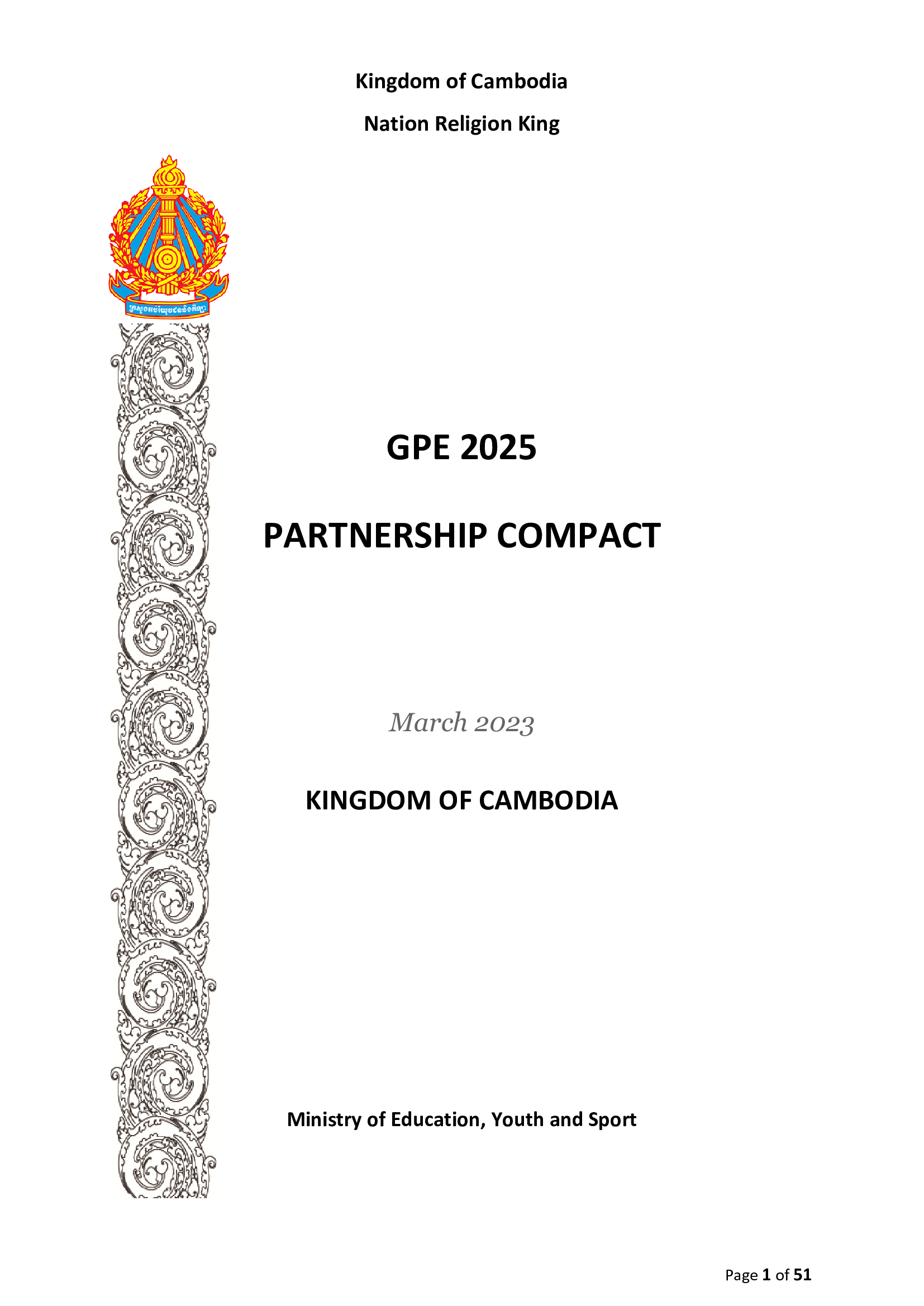-
Type: Program development
Years: 2023 -
Allocation: US$199,575
Utilization: 0
Grant agent: UNESCO
-
Type: Multiplier
Years: 2022 - 2027
Allocation: US$10,000,000
Utilization: US$2,833,800
Grant agent: WB
-
Objective:
Improve the quality of primary education, especially for children from disadvantaged groups, and foster effective leadership and management of education staff.
Documents:
-
Type: Program development
Years: 2021 - 2022
Allocation: US$200,000
Utilization: US$154,162
Grant agent: WB
-
Type: COVID-19
Years: 2020 - 2022
Allocation: US$7,000,000
Utilization: US$5,799,279
Grant agent: UNICEF
-
Objective:
Support the country's national response plan (named Cambodia Education Response Plan to the COVID-19 Pandemic) made up of a set of focused and integrated measures to ensure girls and boys are able to continue to learn in safe, protective and inclusive environments.
Document:
-
Type: Program implementation
Years: 2018 - 2022
Allocation: US$20,600,000
Utilization: US$19,815,606
Grant agent: UNESCO, UNICEF
-
Objective:
Ensure stronger quality standards for education planning, programming and monitoring by providing specific incentives to focus resources on achieving improved performance in equity, efficiency and learning outcomes and to go beyond past trends in these areas.
Documents:
-
Type: Sector Plan Development
Years: 2016
Allocation: US$61,945
Utilization: US$61,945
Grant agent: UNICEF
-
Type: Program development
Years: 2016 - 2018
Allocation: US$149,590
Utilization: US$149,590
Grant agent: UNESCO
-
Type: Program implementation
Years: 2014 - 2017
Allocation: US$38,500,000
Utilization: US$38,500,000
Grant agent: WB
-
Objective:
Expand access to early childhood education for 3-5 year old; and contribute to improved access to and quality of basic education, particularly for those from disadvantaged backgrounds.
Documents:
-
Type: Sector Plan Development
Years: 2013 - 2014
Allocation: US$178,215
Utilization: US$178,215
Grant agent: UNESCO
-
Type: Program development
Years: 2013 - 2014
Allocation: US$156,216
Utilization: US$156,216
Grant agent: WB
-
Type: Program implementation
Years: 2008 - 2012
Allocation: US$57,360,855
Utilization: US$57,360,855
Grant agent: WB
-
Objective:
Speed up progress towards improved grade 1 right-age entry, net enrollment, retention, progression rates and grade 6 completion rates in primary education.
Document:


